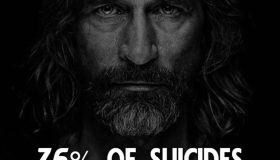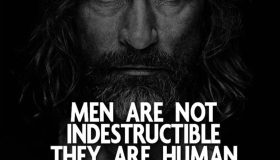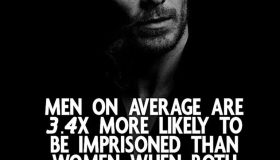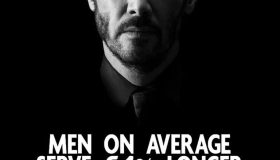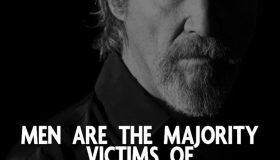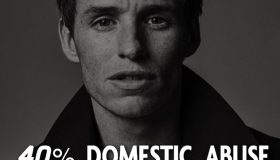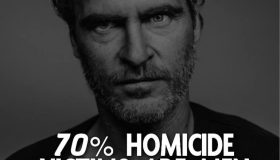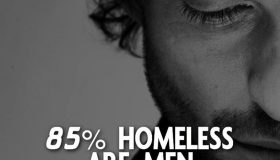International Men’s Day arrives every year with barely a whisper. It passes like a shadow—quiet, unnoticed, often mocked, sometimes ignored—despite being dedicated to half the world’s population. There are no campaigns splashed across cities, no global movements of empathy, no special broadcasts or celebrity tributes. Instead, it slips by with a heavy kind of silence, a silence that mirrors the unspoken ache within millions of men who have been taught—since boyhood—to swallow their emotions until even they can no longer taste them. We call men protectors, providers, guardians, anchors, shields, foundations. We praise their strength, resilience, reliability. Yet we almost never call them human. We forget, or refuse to acknowledge, that the faces behind these roles are often trembling, exhausted, yearning for comfort, and terrified of being seen as anything less than unbreakable.
The haunting statistics in those images are not abstract figures—they are the ghosts of lives cut short, the echoes of unheard cries, the scars of battles nobody witnessed. Behind every number is a man who once laughed, dreamed, hoped, tried, failed, and eventually broke in a world that offered him no place to fall.
Take the first truth: 76% of suicides are men. Men die by suicide nearly four times more than women—not because they feel less, but because they have been conditioned to feel nothing. A boy grows up hearing the same commandments over and over: Be strong. Don’t cry. Don’t complain. Be a man. So he learns to laugh at funerals, hide his trauma behind jokes, silence his panic attacks during sleepless nights, and push through emotional storms with a mask so convincing that even the people closest to him never notice the storm inside. He becomes a pillar—emotionally, financially, morally—until one day he collapses. His death shocks everyone, because he never learned how to show the cracks.
And when it comes to violence, society pretends men are invincible. We imagine them as warriors, aggressors, threats—not victims. Yet men make up the majority of homicide victims, assault victims, war casualties, occupational fatalities. When a man dies violently, the world shrugs: Men fight. Men take risks. Men are used to this. But men do not choose violence—violence chooses them, and society simply accepts it as the natural order. Male suffering becomes background noise.
Even domestic abuse—a subject widely acknowledged and rightly condemned when women experience it—becomes taboo and almost laughable when the victims are men. Yet 40% of domestic abuse victims are men. Who believes a man when he says he’s afraid of his partner? Who takes him seriously when he says he is being manipulated, slapped, screamed at, isolated, controlled? He is told he must be exaggerating. He is reminded that he is physically stronger, so he should simply “walk away.” He is told men cannot be abused. Shelters won’t accommodate him. Hotlines are designed for someone else. Society mocks his pain—Imagine calling for help and being laughed at. Imagine bleeding and being told it’s impossible. That is the reality for abused men.
Then there is the justice system. For the same crimes, men are 3.4 times more likely to be imprisoned, and once imprisoned, they serve 64% longer sentences. Not because they are more dangerous—but because society sees them as more disposable. A troubled woman is offered rehabilitation; a troubled man is thrown into a cell. A woman’s mistake is seen as a cry for help; a man’s mistake is seen as proof he is a threat. And when men finally leave prison, the punishment doesn’t end—they face lifelong stigmas, job rejection, custody loss, homelessness, and the quiet humiliation of being treated as less than human.
Homelessness is another unspoken wound. Eighty-five percent of homeless individuals are men. Walk through any city at night and you will see them—sleeping under bridges, on cold pavement, behind bus stations, using cardboard as a mattress and the night sky as their only shelter. They are not there because they are lazy or irresponsible, but because life collapsed beneath them: job loss, trauma, addiction, war, abuse, mental illness, grief, untreated depression. They fell—and there was no one to catch them. The world applauds men who stand tall but overlooks the men curled up on the ground.
The cruel irony is that men often look strong because nobody ever allows them to look weak. Their worth is measured in strength, money, productivity, stability, stoicism, sacrifice. The moment they falter in any of these roles, they feel like failures. A man can be surrounded by family and friends yet feel utterly alone, because he has been taught that vulnerability is unacceptable. Men are not allowed to cry, not allowed to ask for help, not allowed to break. And so they die inside long before anyone notices.
Behind every quiet man is a lifetime of silent battles. The father who works himself to exhaustion to keep his home together. The young man who hates his reflection but has no one to confide in. The husband who hides his depression to avoid becoming a burden. The boy who learned that tears make him weak. The friend who cracks jokes while anxiety eats him alive. The brother who tries to speak but swallows his feelings out of fear of being mocked. Men carry emotional wars that nobody sees. They walk through storms without umbrellas. They bleed internally in a world that only notices visible wounds. They suffer invisibly because society taught them that their pain is invisible.
International Men’s Day should not be a casual celebration—it should be a global alarm bell, a wake-up call. It should force us to confront the truth that men are hurting, breaking, and dying in silence. It should remind us to prioritize male mental health, to eliminate the stigma around vulnerability, to build support systems for men, to acknowledge male victims of abuse, to teach boys emotional literacy, and to dismantle the idea that men must be superheroes. Men don’t need to be indestructible. They don’t need to be perfect. They don’t need to be pillars of strength 24/7. They just need permission to be human.
To every man reading this: You matter. You are allowed to be tired. You are allowed to be scared. You are allowed to feel pain. You are allowed to ask for help. You are allowed to break without fearing you will lose your worth. Real strength is not silent suffering—it is surviving in silence and still standing. Today, on International Men’s Day, we see you—not as machines, not as protectors, not as shields, but as fragile, emotional, wounded, beautiful human beings who deserve compassion, care, and understanding. Today, we honor your battles—those the world sees, and especially those you carry alone in the dark.

